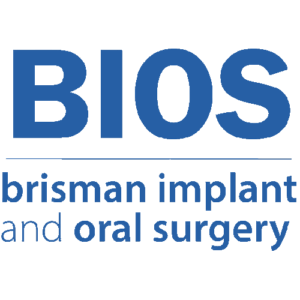Have you recently undergone oral surgery and are wondering, “What are some soft foods to eat after oral surgery that will not compromise recovery?” Many individuals struggle with dietary choices immediately following oral surgical procedures.
Eating the right foods during recovery can make a difference in your healing process. The right nutrition not only minimizes discomfort but also promotes quicker and smoother recovery. Let us explore the best soft foods to eat after oral surgery.
Why Is Getting the Right Nutrition Post-Oral Procedure Important?
- Speeds Up Healing. Consuming the right foods provides the essential nutrients that your body needs to repair tissues and cells, accelerating the overall healing process.
- Reduces Complications. Proper nutrition minimizes the risks of complications such as dry sockets and infection. Nutrient-rich foods ensure that the surgical sites heal without interruptions, reducing the likelihood of post-operative issues.
- Supports Blood Clotting and Wound Healing. Nutrient-dense foods aid in effective blood clotting and wound healing. Vitamins and minerals play an essential role in making sure that your surgical wounds recover swiftly and efficiently.
- Enhances Comfort and Reduces Inflammation. Eating well can decrease discomfort during the recovery phase. Certain foods have anti-inflammatory properties that help reduce swelling and pain, making the healing period more tolerable.
- Boosts Immunity and Energy Levels. Proper nutrition boosts your immune system, which is essential for fighting off potential infections. Nutrient-rich foods also help maintain your energy levels, which is vital for recovery, especially if you’re feeling weak post-surgery.
- Promotes Hydration. Foods high in water content help keep you hydrated, which is essential for recovery. Proper hydration supports overall health and helps maintain bodily functions, which can often be overlooked during the recovery process.
What to Eat After an Oral Surgical Procedure?
1. Yogurt
Greek yogurt, in particular, is one of the good soft foods to eat after oral surgery due to its high protein content and creamy texture, which is easy on a sensitive mouth. The probiotics in yogurt also promote good oral health.
2. Mashed Potatoes
Mashed potatoes are the quintessential comfort food with a smooth texture that makes them perfect for post-surgery consumption. Plus, they’re filling and can be enriched with milk or cream for added calories and nutrition.
3. Smoothies
Blended smoothies can be nutritious powerhouses, especially when made with soft fruits like bananas and protein powder. These are excellent choices for maintaining adequate nutrition and hydration.
4. Mashed Avocado
Avocado is rich in healthy fats and has a smooth texture, making it an ideal choice. Mashed avocado on toast (if the bread is soft) can be both nutritious and satisfying.
5. Cottage Cheese
Cottage cheese provides a source of protein with a creamy texture that won’t aggravate your surgical sites. You can enjoy it as is or blend it for an even smoother consistency.
6. Pureed Soups
Blended soups like lentil soup and bone broth are rich in nutrients and offer a warm, comforting meal option without putting strain on your mouth.
7. Ice Cream
Ice cream not only tastes delicious but also offers a soothing cold temperature, which can help reduce swelling and numb the pain.
8. Cream of Wheat
This warm cereal is easy to prepare and soft enough for a sensitive oral cavity. It’s also a good source of iron.
9. Mashed Vegetables
Soft vegetables like sweet potatoes and cauliflower can be mashed into a smooth consistency, offering both comfort and nutrition.
10. Protein Shakes
These provide all the protein your body needs to heal properly. For a healthier alternative, opt for shakes with low sugar content.
What Foods to Avoid After the Procedure?
Hard or Crunchy Foods
Foods like nuts, hard bread, and raw vegetables can disrupt the healing wounds and extraction sites, leading to complications.
Spicy Meals
Spicy foods may irritate the surgical sites and hamper the healing process.
Acidic Products
Anything high in acidity, such as orange juice, tomato sauce, or acidic juices, can cause oral discomfort, slowing down your recovery.
Sticky
Gum, caramels, and other sticky substances can adhere to surgical sites, making oral hygiene difficult.
Alcoholic Beverages
Alcohol acts as a blood thinner, which can interfere with blood clot formation. It can also interfere with pain relief medication, prescribed medications, and overall healing.
Meal Planning Tips and Recipes
- Prioritize Soft and Moist Foods. Select foods that are simple to swallow and chew. This makes eating less painful and reduces the risk of irritating the procedure site. Think mashed potatoes, smoothies, yogurt, and oatmeal.
- Opt for Nutritious Ingredients. Focus on nutrient-rich options to aid your body’s healing process. Incorporate proteins like scrambled eggs and soft tofu, and mix in vitamins and minerals through fruits and vegetables in pureed or smoothie form.
- Avoid Spicy and Acidic Foods. Spices and acidic ingredients can aggravate freshly treated areas in your mouth. Stick to mild flavors and avoid citrus fruits, tomatoes, and spicy dishes until you are fully healed.
- Break Down Meals into Smaller Portions. In addition to being easier on the mouth, eating smaller, more frequent meals can help you maintain a consistent nutritional intake throughout the day. This approach can also prevent you from feeling overwhelmed by larger meals.
- Use a Blender or Food Processor. These kitchen tools help create smooth, easy-to-eat meals. Blend soups, smoothies, and purees to maintain a varied and enjoyable diet without putting strain on your mouth.
- Be Mindful of Temperature. Incredibly hot or cold foods can cause irritation and discomfort. Aim for lukewarm or room-temperature meals to ensure a pleasant eating experience.
- Incorporate Broths and Soups. Soups and broths are typically soft and can be nutrient-dense. Load them with blended vegetables and proteins to create satisfying meals that are gentle on your mouth.
- Try Pre-Made Smoothies and Purees. Having ready-made options can save time and effort when you’re not feeling up to meal prep. Store-bought or homemade, these can provide quick and nutritious options.
Sample Recipes
Smooth and Creamy Banana Oat Smoothie
Ingredients:
- 1 ripe banana
- 1/2 cup oatmeal (cooked and cooled)
- 1 cup milk or a milk alternative
- 1 tablespoon honey
- 1/2 teaspoon vanilla extract
Instructions: Blend all ingredients until smooth. Serve at a moderate temperature.
Comforting Chicken and Vegetable Puree Soup
Ingredients:
- 1 cup cooked, shredded chicken
- 2 cups chicken broth
- 1 cup chopped, cooked vegetables (carrots, potatoes, squash)
- 1/4 teaspoon salt
- 1/4 teaspoon pepper
Instructions: Combine all ingredients in a blender. Blend until smooth. Heat gently before serving.
Buttery Mashed Sweet Potatoes
Ingredients:
- 2 large sweet potatoes, peeled and cubed
- 1/4 cup unsalted butter
- 1/4 cup milk or a milk alternative
- 1/2 teaspoon cinnamon
- Salt to taste
Ingredients: Boil sweet potatoes until soft, about 20 minutes. Drain and mash with butter, milk, cinnamon, and salt until smooth. Serve warm.
How Long Do You Have to Eat Soft Foods After Oral Surgery?
- First 24-48 hours. Stick to liquids and very soft foods like yogurt and smoothies.
- 3-7 days. Gradually introduce slightly more textured foods, but avoid hard, crunchy, or sticky items.
- After a week. Slowly reintroduce regular foods, still avoiding anything that could disrupt healing (nuts, chips).
Factors affecting the duration of taking soft food after oral surgery include the surgery’s complexity, age, health, and adherence to post-op care. Always follow your oral surgeon’s specific advice for the best recovery outcomes. Consult your healthcare provider if you have concerns or complications.
Additional Considerations
- Hydration. Staying hydrated is great for recovery. Drink plenty of water throughout the day to keep your body hydrated. You can also include broth-based soups and herbal teas.
- Vitamins and Minerals. A diet rich in vitamins and minerals will benefit your healing mouth. Focus on foods high in vitamin C for wound healing, calcium for bone health, and iron to restore vitality. Adequate consumption of omega-3 fatty acids found in foods like soft-cooked salmon can reduce inflammation.
- Avoiding Complications. Following your dental care routine and avoiding tobacco products and carbonated drinks can significantly lower the risk of complications such as a dry socket or infection. Always consult your dentist for personalized advice.
Optimize Recovery: Consult Brisman Implants and Oral Surgery Today
Proper nutrition and well-planned meals can make your recovery from dental surgery more comfortable and efficient. If you have any concerns or need more personalized advice, don’t hesitate to contact Brisman Implants and Oral Surgery for expert guidance.
Our expert team is dedicated to providing you with personalized advice on oral surgery and post-surgery recovery. Don’t leave your healing to chance—consult with us for comprehensive guidance tailored to your needs.


